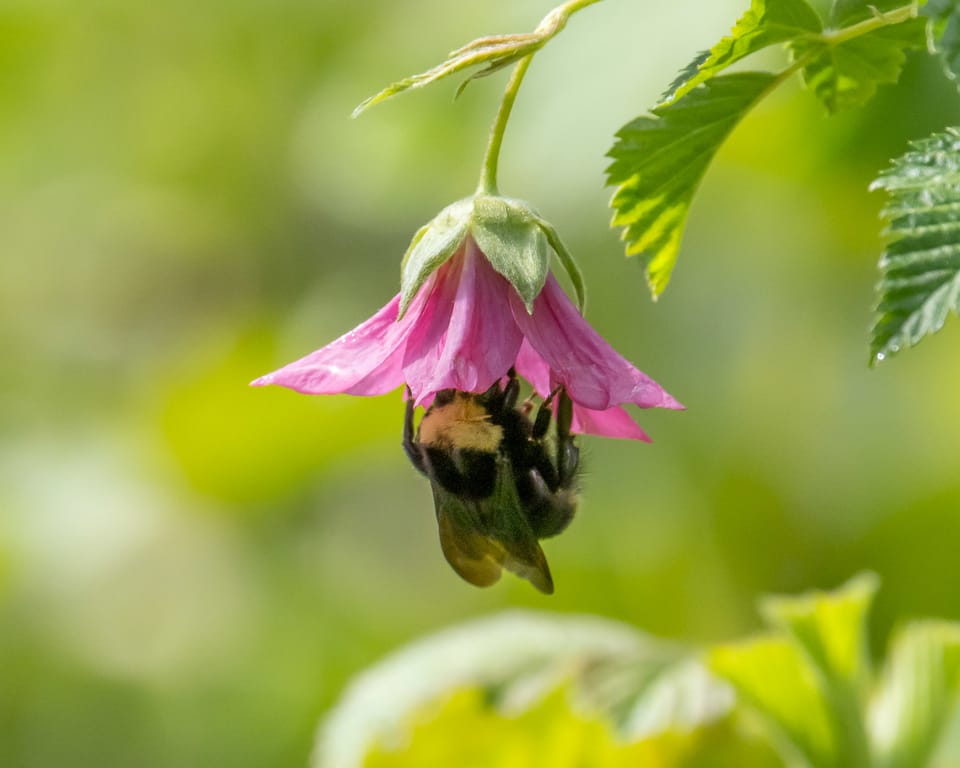EcoWest News, May 10, 2022

Welcome to EcoWest News, a weekly round-up of news and resources that you can put to use in addressing environmental issues and protecting the wild in your community.
Introducing . . . the Royal Astronomical Society of Canada – Calgary Centre
Established in 1958, RASC – Calgary is one of the Society’s larger, more active centres with a wide variety of events and resources for star-gazers and amateur astronomists. They hold monthly meetings with guest speakers; observing groups and events for novices, youth, and experienced; and rent telescopes. Recent talks have been on black holes, planet-forming disks, and a photographic tour of the night sky. Members attend annual Star Parties in Cypress Hills Interprovincial Park and at Mt. Kobau. RASC has groups right across Canada - check here for one near you.
Across the West
Nature Saskatchewan is urging the public to let the provincial government know that Crown lands, especially grasslands, are important and should be protected. [Regina Leader Post]
The Province of British Columbia has proposed regulatory changes that will ban the widespread sale and use of second-generation rodenticides. [BC Gov News]
Local groups oppose an open-face coal mine on the Telkwa River in northwest BC: “Telkwa Coal is planning to sell a product that is being phased out. As a community, we would be wise to ask ourselves if developing an open-pit coal mine with a doubtful future is an acceptable risk to take on for the rivers, the surrounding environment, and the community.” [Terrace Standard]
Canadian railway companies are testing battery-electric and hydrogen-powered locomotives. [CBC]
Around the World
Mining companies are eager to start mining the bed of the Pacific Ocean, but environmental campaigners are opposed: “We need to transition towards a more circular economy, in which we waste less and reuse more, instead of trying to destroy one of our planet’s last great wildernesses at the bottom of our oceans.” [The Guardian]
A larvicide that targets disease-spreading mosquitoes but not beneficial species is a delicate balance … a teenager’s inexpensive larvicide does just that. [Smithsonian Magazine]
Agriculture
Open-source tractors can be fixed, repaired, and modified. They also support the local economy rather than large multinationals and can be adapted to farm needs and conditions. [Civil Eats]
Drylands, such as parts of the Canadian Prairies, are getting drier. “Governments must start implementing policies that aim to reduce the future impacts of drought and build farmer resilience.” [The Conversation]
Forestry
Small-scale, selective logging could serve as a model in BC. “Mills shouldn’t own tenure … It should be owned by [First Nations], woodlots and community forests who would sell logs to the mills [through auction].” [The Narwhal]
The BC government promised in November to defer logging in 2.6 million hectares of old-growth forest, but that hasn’t translated into action with ongoing logging and pending cut permits in proposed deferral areas. [Kimberley Bulletin]
Urban Life
Installing tree guards has become a popular way to protect riverside trees from beavers. A recent research study shows it pays to follow installation protocols and some types of guards are more effective than others. [Environmental Management]
A European study has identified 12 effective ways municipalities can reduce car use and support climate goals in cities: parking and traffic control, workplace parking charge, and mobility services for commuters. [Science Direct]
Hedley, BC, is taking steps to fireproof its community [CBC British Columbia]
On the Bookshelf
Generation Dread: Finding Purpose in an Age of Climate Crisis by Britt Wray: “We have to face and value eco-anxiety … before we can conquer the deeply ingrained, widespread reactions of denial and disavowal that have led humanity to this alarming period of ecological decline.” [The Tyee]
Natural Wonders
From a female red-winged blackbird extracting insects from a water lily to a greater roadrunner taking a dust bath – award-winning photographs. [Audubon]
Photo credit: https://www.flickr.com/photos/apmckinlay/52043750539/
EcoFriendly West informs and encourages initiatives that support Western Canada’s natural environment. Like us on Facebook, follow us on Twitter, or subscribe by email.

Member discussion